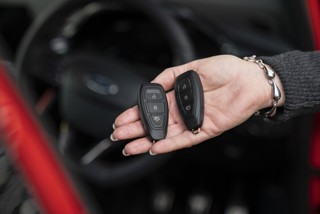The number of people paying company car tax has again fallen substantially, with HMRC reporting 30,000 fewer people receiving the benefit.
The latest benefit-in-kind (BIK) statistics, published by HMRC, show there were 870,000 company car drivers in 2018-19 – a massive 30,000 year-on-year decline.
The provisional figures suggest that the number of employees receiving the benefit has fallen by some 90,000 in the past five years, from 960,000 in 2015/16.
HMRC has now confirmed that there were 900,000 people paying company car tax in 2017/18 – provisional figures published last year suggested 890,000.
That was a fall of 40,000 on some 940,000 company car tax-payers reported the previous tax year (2016/17).
HMRC figures have also shown that the amount of company car tax collected increased. Despite the decline in employees paying BIK on a car between 2016/17 and 2017/18, the taxman collected £1.62 billion - £70m more than the £1.55bn it collected the previous tax year.
The reduction in company cars seen over the past few years coincides with the introduction of voluntary payrolling, according to HMRC.
Like last year, it is claiming that at least part of the reduction is due to employers moving from submitting P11D returns to collecting tax on company cars through payroll.
In 2016 to 2017 employers were not able or required to submit more detailed information about company cars when collecting tax on this benefit through voluntary payrolling.
From 2017 to 2018 employers payrolling car benefit were able to provide more detailed data about the cars being provided through their FPS (Full Payment Submission), which HMRC told Fleet News would rectify the situation.
However, providing this data was not mandatory until 2018 to 2019 and even after mandation of providing more detailed data through FPS, HMRC says that there are non-trivial levels of non-reporting.
As such, it maintains that a significant number of company cars were not reported to HMRC between 2016 to 2017 and 2018 to 2019.
It is not possible to produce accurate estimates of the number of unreported company cars, but HMRC analysis suggests they account for a “high proportion” of the reduction observed.
The fleet industry will be hoping that new company car tax rates, which include a zero percentage rate for pure electric vehicles, introduced from April 2020 will go some way to bucking this downward trend.
Leasing companies began reporting a surge in interest in plug-in vehicles almost immediately after the new rates were announced in July 2019.
One year on, and demand shows no sign of diminishing. David Bushnell, principal consultant at Alphabet GB, said: “Year-on-year, the electric and hybrid sector is continuing to grow at a rapid pace. In 2020, we’re starting to see more of a shift towards pure electric vehicles over hybrids, with a 124% increase of pure electric vehicle orders compared with 2019. Hybrid vehicles remain popular however, and sales have continued to rise compared with last year’s figures, up by 41%.”
Further analysis and insight on the latest company car statistics, will be available in the October edition of Fleet News.























Login to comment
Comments
No comments have been made yet.